Dhyan Chand, widely regarded as one of the greatest field hockey players of all time, was born on August 29, 1905, in Allahabad, India, and passed away on December 3, 1979, in Delhi. Chand's incredible goal-scoring ability and three consecutive Olympic gold medals (1928, 1932, and 1936) cemented his legendary status. He joined the Indian army in 1922 and rose to prominence after a successful tour with the army team in New Zealand in 1926. Chand's impressive career highlights include captaining the Indian team to victory in the 1936 Berlin Olympics, scoring three goals in the final match against Germany, and netting 133 goals during India's triumphant 1932 world tour. Nicknamed "the Wizard" for his exceptional ball control, Chand played his final international match in 1948, having scored over 400 goals in his illustrious career.
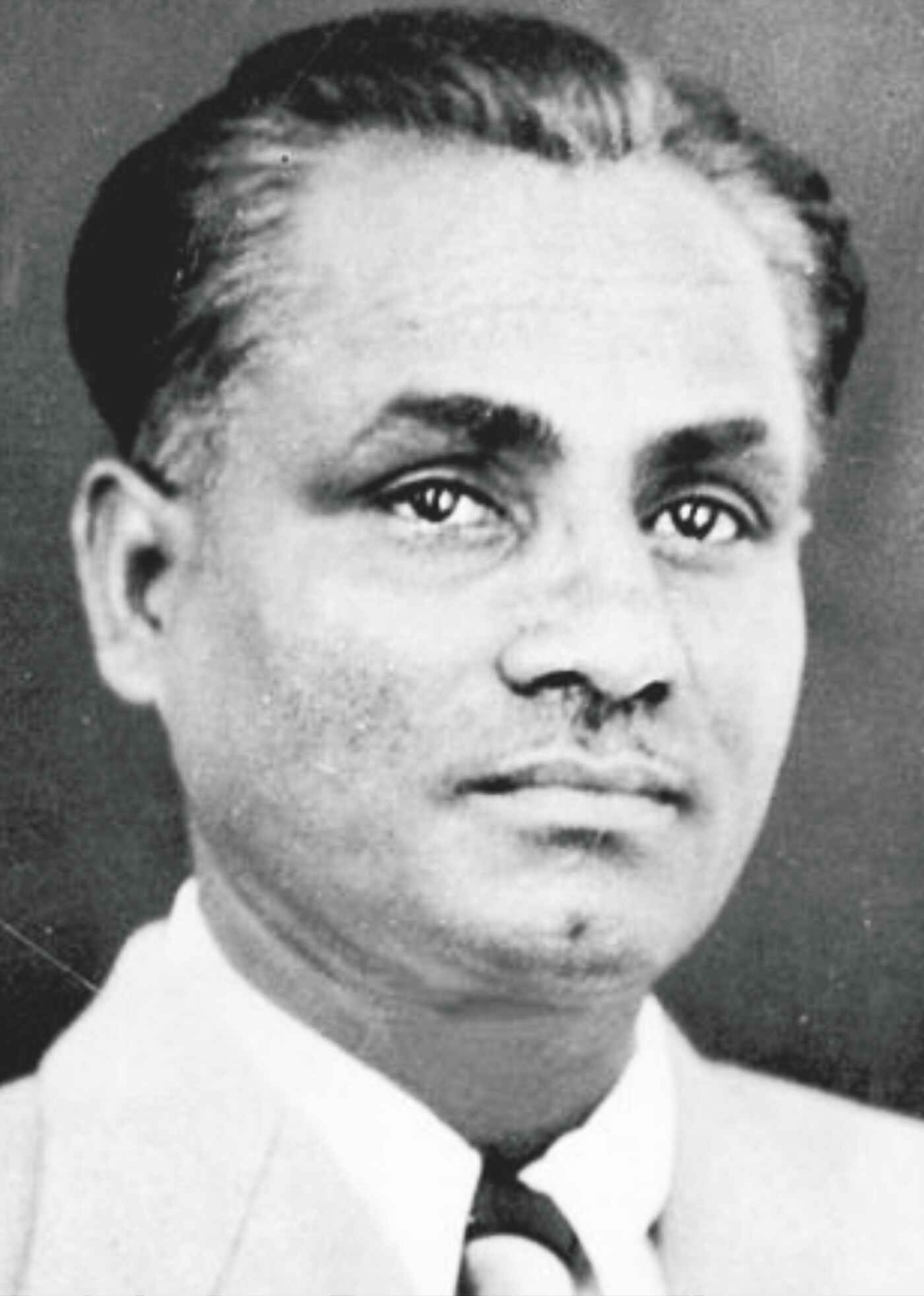
| Major Dhyan Chand | |
| Birth name | Dhyan Singh |
| Nickname(s) | The Wizard, The Magician |
| Born | 29 August 1905[1] Allahabad, United Provinces of Agra and Oudh, British India (present-day Prayagraj, Uttar Pradesh, India) |
| Died | 3 December 1979 (aged 74)[2] All India Institute of Medical Sciences, New Delhi, India |
| Allegiance | British India (1922–1947) India (from 1947) |
| Service/branch | British Indian Army Indian Army |
| Years of service | 1922–1956 |
| Rank | Major |
| Unit | 1st Brahmans 14th Punjab Regiment Punjab Regiment |
| Awards | Padma Bhushan |
Why is Major Dhyan Chand known as ‘Hockey Wizard’?
The appellation of the 'Hockey Prodigy' was bestowed upon Major Dhyan Chand, a name garnered through his preternatural acumen exhibited in hockey. His virtuosity in controlling the ball was of such mesmerizing quality that spectators routinely grappled with conceiving the plausibility of such adeptness emanating from mortal prowess. His capacity to manipulate the ball was great; he effortlessly manoeuvred past multiple defenders and scored goals with an uncanny ease. This captivating dimension of his performance culminated in the christening of the sobriquet 'Hockey Wizard,' a nomenclature impeccably encapsulating his enchanting proficiencies.
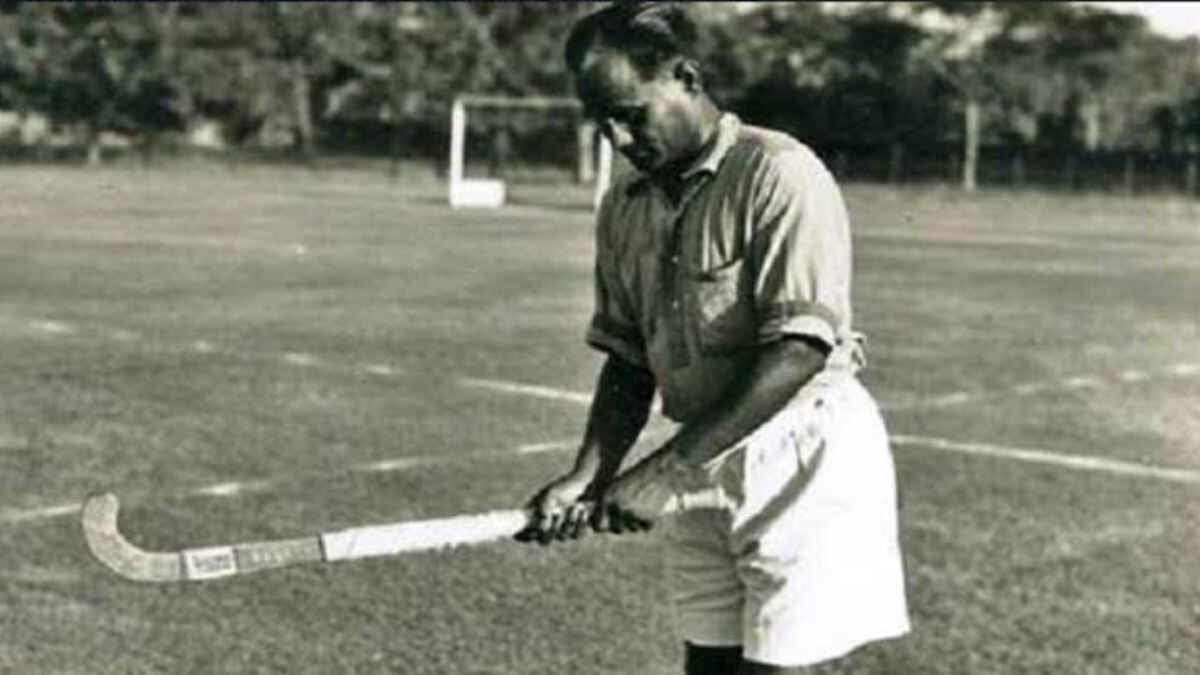
Major Dhyan Chand's indomitable allegiance to the sport manifested in a commitment that transcended diurnal constraints and official mandates. Amid the nocturnal realm, he persisted in his tireless pursuit of perfection, refining his skills under the benevolent gaze of the moon. This resolute dedication warranted him the moniker of Dhyan Chand, a nomen derived from the Hindi lexeme signifying 'moon,' a poignant tribute to his unwavering and relentless exertions.
The Legend of Major Dhyan Chand
August 29, 1905, marks the birth of Major Dhyan Chand Singh. He was born to Sharadha Singh and Sameshwar Singh in Allahabad, India. His journey led him to enlist in the Indian Army, an institution that served as the crucible in which his extraordinary aptitude for field hockey would come to prominence.
Dhyan Chand's rise culminated with his selection for the Indian Army team's tour of New Zealand in 1926. During the tour, India exhibited remarkable prowess, securing victories in 18 matches, drawing two, and succumbing to a solitary loss. This achievement garnered widespread acclaim, with Dhyan Chand particularly hailed for his outstanding performance in his inaugural international outing. Subsequently, upon his return, he attained the rank of Lance Naik within the Punjab Regiment of the British Indian Army.
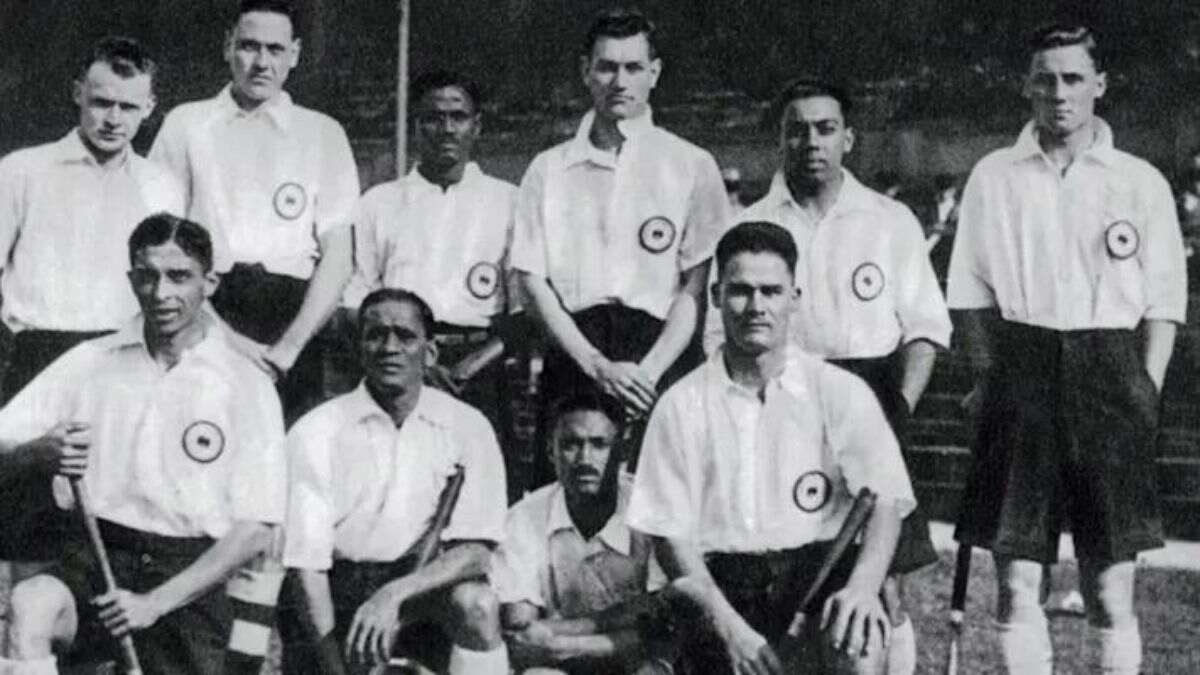
His exceptional skills garnered swift recognition, propelling Dhyan Chand to join the Indian hockey contingent for the 1928 Amsterdam Olympics. As the sport made its Olympic debut, the newly established Indian Hockey Federation (IHF) was resolute in assembling a premier team for the Netherlands-held Games. To finalise the Olympic squad, the IHF organized an inter-provincial tournament that featured five teams: Punjab, Bengal, Rajputana, United Provinces (UP), and Central Provinces. Dhyan Chand seized the occasion, representing UP as the army teams abstained from the event. With deft ball control and incisive runs, he captivated both selectors and spectators while consistently confounding opposing defences.
Major Dhyan Chand at the Olympics
Dhyan Chand's showing at the inter-provincial tournament, positioned as the centre-forward alongside his partner George Martins, solidified his presence in India's pioneering Olympic hockey lineup. Despite contending with financial challenges ahead of their voyage to Amsterdam, the Indian hockey team seamlessly found their rhythm upon reaching the Dutch city.
Fore-fronting India was Dhyan Chand, whose prolific performance resulted in a remarkable 14 goals across 5 matches, culminating in a gold medal triumph during their inaugural Olympic endeavour.
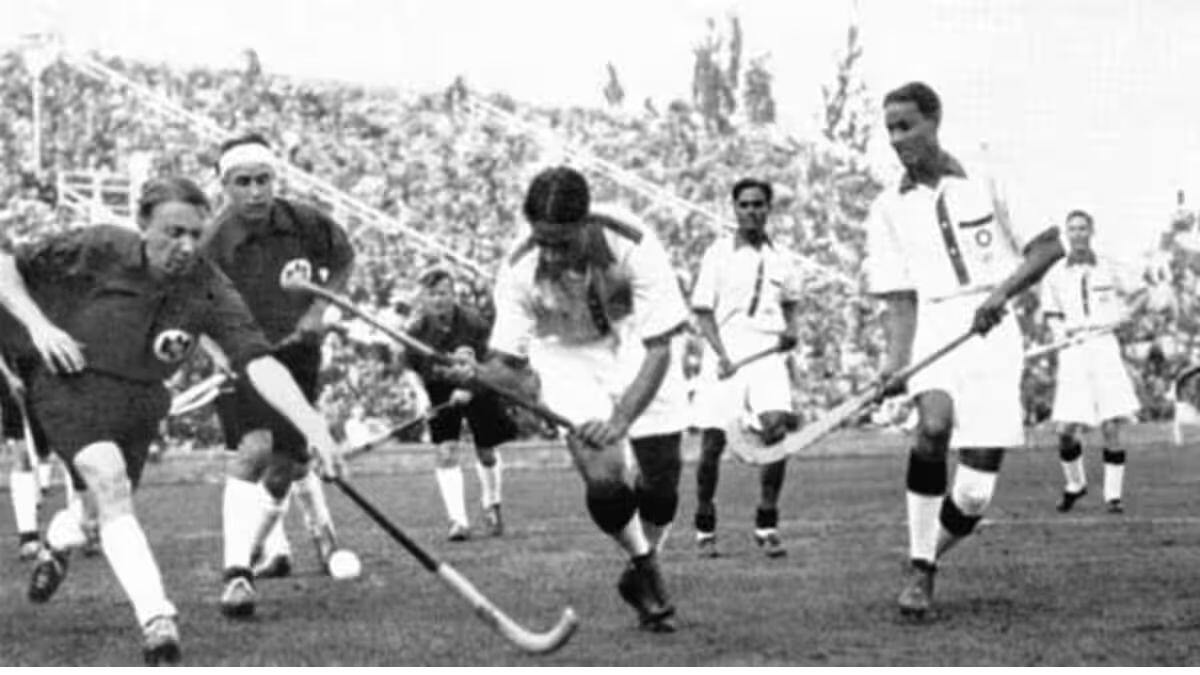
Subsequent years would witness Dhyan Chand's legend blossoming exponentially, as the native of Allahabad elevated his game, pivotal in India's successful defence of their Olympic title at the 1932 Los Angeles Games. Notably, this victory held an added significance with the inclusion of his brother Roop Singh in the triumphant team.
Transitioning to the 1936 Olympics in Berlin, Dhyan Chand's role advanced to that of captaincy, a responsibility that invigorated his performance even further. During the competition, the Indian hockey team amassed a total of 38 goals, clinching yet another Olympic gold and giving only one goal in the final match. This achievement propelled India to secure an extraordinary hat-trick of successive Olympic gold medals, an unimaginable feat that underscored their dominance on the global stage.
Also Check - National Sports Day Quiz Questions Answers
Legacy
Following his triumphant return from Berlin, Chand re-engaged with his regiment, dedicating himself to the realm of army hockey. Even as the sport in India soared to greater heights with luminaries like Balbir Singh Sr spearheading an era of unprecedented victories, Dhyan Chand's indelible contribution remained unmatched.
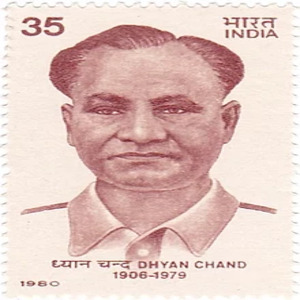
In 1956, Dhyan Chand concluded his army service at the rank of Major and was adorned with the esteemed Padma Bhushan, a distinguished civilian accolade in India. Swiftly transitioning to coaching, he assumed the role of chief coach at the National Institute of Sports (NIS), Patiala. His enduring legacy persisted until his passing in 1979, at the age of 74, leaving an indomitable imprint on the nation.
India annually commemorates its National Sports Day on August 29, Dhyan Chand's birthday and as an exclusive distinction, he is the sole hockey player to be honoured with a commemorative postage stamp and a First-Day Cover. The Dhyan Chand Award for Lifetime Achievement in Sports stands as a prestigious national accolade bearing his name. Further immortalizing his memory, the national stadium in New Delhi bears his name, standing as a testament to his legacy. Dhyan Chand's saga continues to ignite the aspirations of countless hockey players, encapsulating an enduring source of inspiration.
Comments
All Comments (0)
Join the conversation